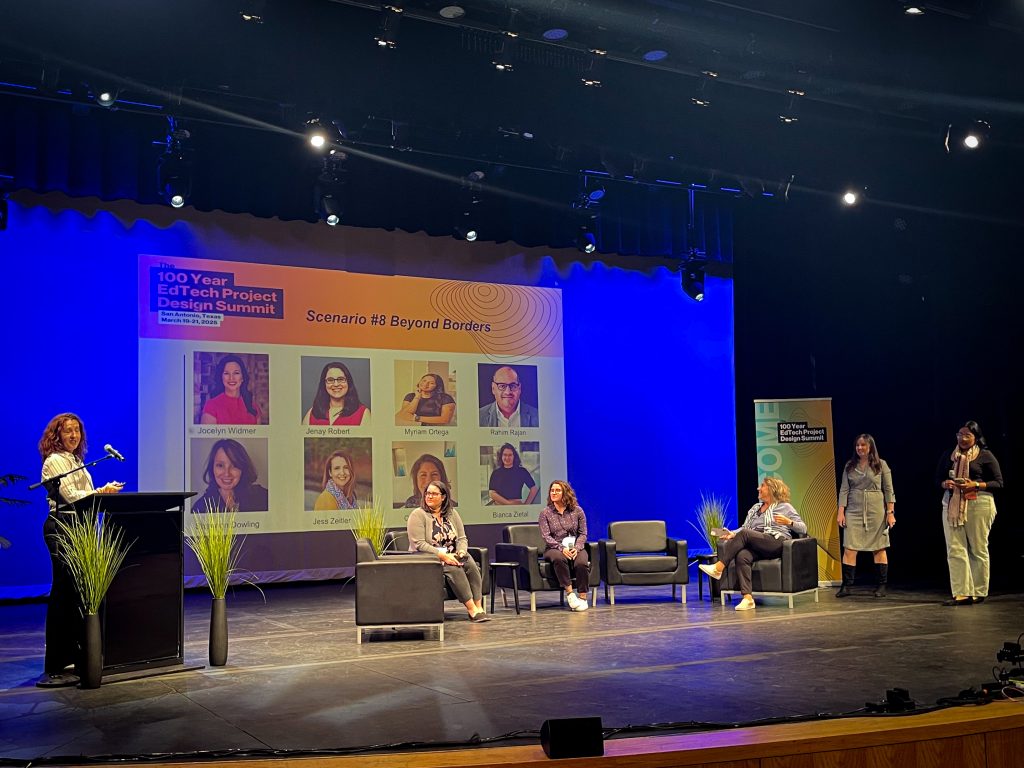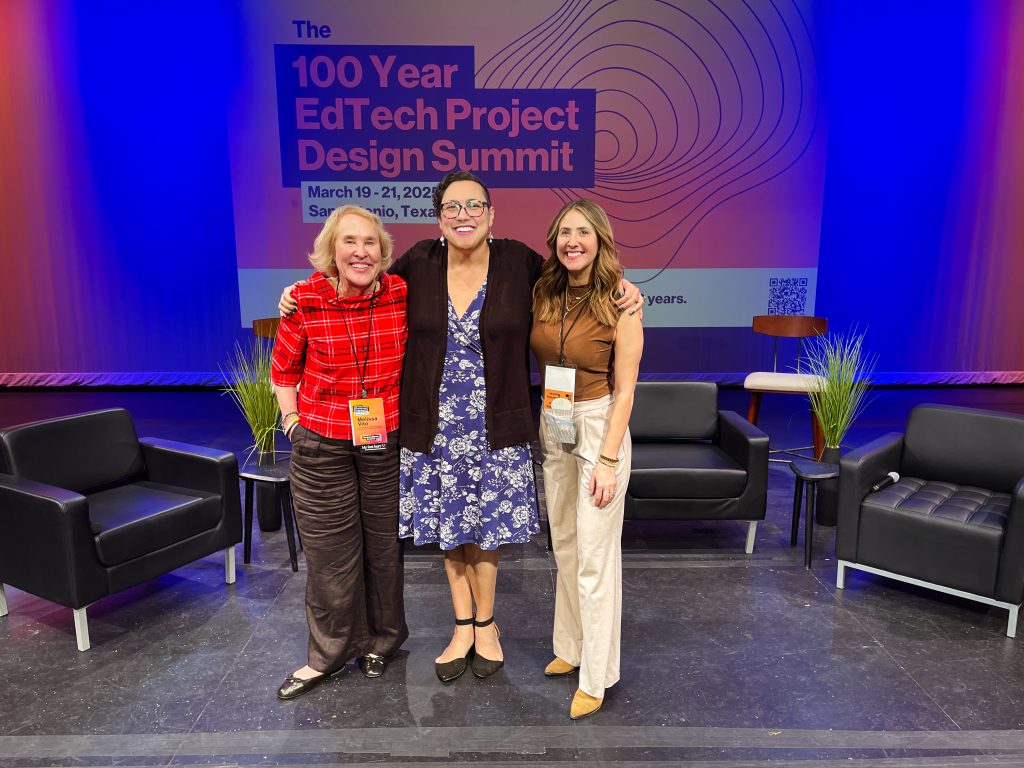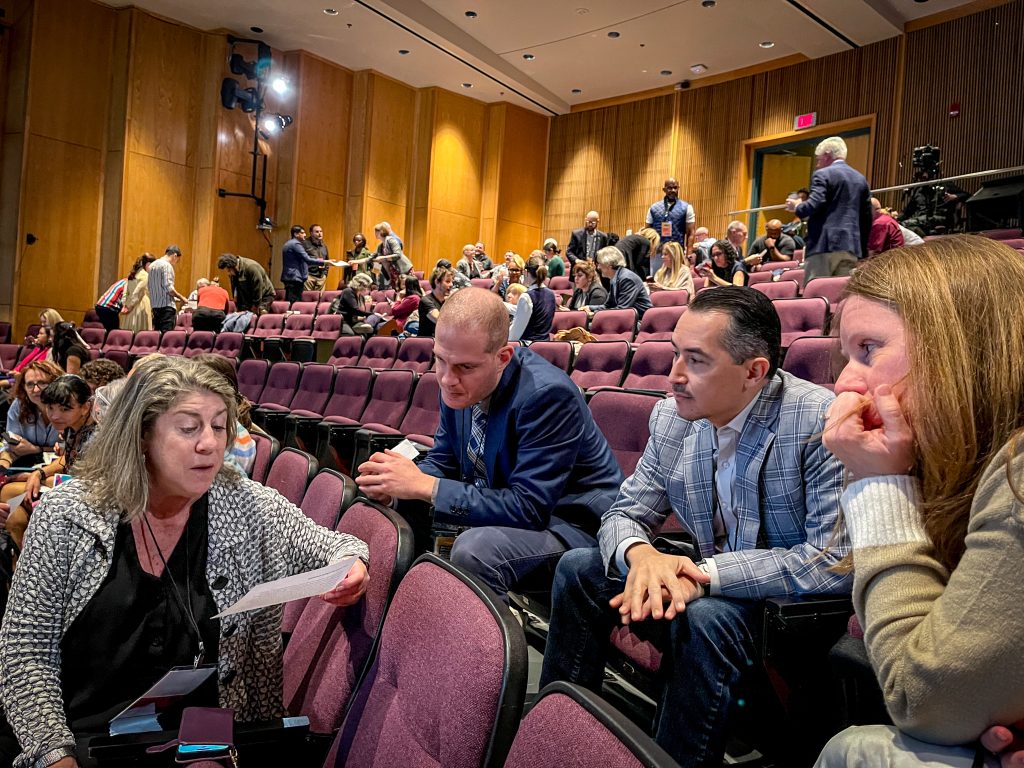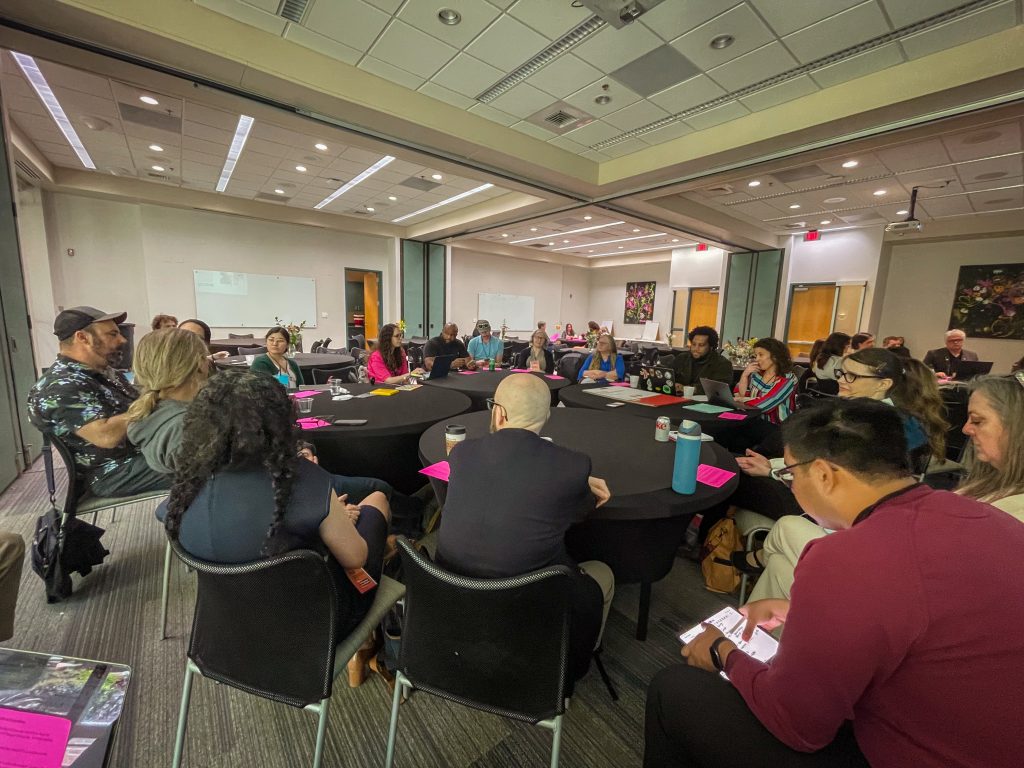Charting the Course for Academic Innovation: Reflections from the 100 Year Ed Tech Project
Published by: WCET | 4/3/2025
Tags: Artificial Intelligence, Futures, Innovation, Student Success, Student Voice, Technology, WCET
Published by: WCET | 4/3/2025
Tags: Artificial Intelligence, Futures, Innovation, Student Success, Student Voice, Technology, WCET
The future of education really isn’t that far away, especially when you consider that it is being shaped right now through the ideas, innovations, and voices of all of us. That’s why WCET wanted to be a part of an outstanding event held last week, the 100 Year Ed Tech Project’s 2025 Design Summit. This year’s Summit, held at the University of Texas at San Antonio (UTSA) and sponsored by WCET, brought together educators, students, and thought leaders.
In today’s post, Dr. Angela Gunder joins us to share key takeaways from the Summit, highlighting the power of student-led innovation, the impact of collaborative scenario design, and the essential role of organizations like WCET in fostering events and conversations just like this one. Thank you, Angela, for these excellent reflections. Make sure to check out the webpage for the 100 Year Ed Tech Project at the end of the post!
Enjoy the read,
Lindsey Downs, WCET

In an ever-evolving world marked by rapid technological advancement and shifting societal needs, how do we ensure that education remains a transformative force for good?
What is the value of gathering to reimagine the future of education 50 years from now?
At the heart of these questions lies a collective desire to envision a future where education is vibrant, inclusive, and driven by innovation. The 100 Year Ed Tech Project’s 2025 Design Summit, held at the University of Texas at San Antonio (UTSA) and sponsored by WCET, was conceived as a space to grapple with these questions and to collectively design actionable solutions.
As a leading authority in digital learning policy, practice, and advocacy, WCET has long championed the development of thoughtful, evidence-based strategies for integrating technology into educational contexts. In my dual role as a co-organizer of the Summit as well as an event participant from a WCET member institution, I was particularly thrilled to have WCET as a partner for this. Their involvement signaled a commitment to bold, future-focused conversations. It reinforced the importance of bringing diverse voices to the table, aligning seamlessly with their vision for advancing the effective use of technology in higher education to expand access and opportunity for all learners.

The Summit itself was an evolution of ideas and aspirations, rooted in the vision of Lev Gonick, CIO at Arizona State University, and further shaped by Samantha Becker, CEO of SAB Consulting, Joe Lambert, Founder and Co-Executive Director of Story Center, and Ruben Puentedura, Founder and President of Hippasus. Their foundational work, which emphasized storytelling and narrative as powerful tools for educational transformation, inspired the core ethos of the 100 Year Ed Tech Project.
The event was designed not only to look forward—envisioning education fifty years into the future—but also to reflect on the lessons of the past fifty years, identifying successes, failures, and opportunities for growth.
One of the most powerful aspects of the Summit was the intentional inclusion of students as equal participants in all opportunities at the event. In a landscape where student voices are often tokenized, the 100 Year Ed Tech Project defied convention by embedding students at the heart of the discourse. Student-led academic innovation has become a hallmark at UTSA, under the visionary leadership of Melissa Vito, VP of Academic Innovation. In particular, the context of AI strategy. Having so many students from UTSA, ASU, and other institutions not only present but actively contributing to the design sprints allowed us to ground our visionary work in real-world perspectives, embodying the principle that the future of education must be co-created with those it seeks to serve.
A powerful remix of the previous year’s Summit was our commitment to democratizing the design of the future scenarios used to plan the next 50 years of ed tech. Rather than relying solely on organizers to draft future scenarios, we issued an open call for ideas from educators around the globe. This call was met with enthusiasm, resulting in a diverse array of scenarios that represented a wide spectrum of challenges and aspirations. The community voted on the most compelling ideas, and those selected became the focal points for the Summit’s collaborative design sprints. This approach not only democratized participation but also ensured that the ideas we explored were timely, relevant, and grounded in the lived experiences of educators from various contexts.

The Summit’s tangible outcomes include blueprints for the future—strategic design solutions ranging from policy recommendations to creative integration strategies. These outputs are not static documents but living resources, intended to be adapted and implemented within diverse educational contexts. Moving forward, we plan to continue the conversation through online forums and future events, nurturing the ideas and partnerships that emerged from the Summit.

As a member of the WCET community, their sponsorship was instrumental in fostering this spirit of inclusion and innovation. WCET’s presence, particularly through the participation of Van Davis, Executive Director, and Megan Raymond, Senior Director of Memberships and Programs, brought critical insights into the evolving landscape of AI in education. Their commitment to policy and practice provided a crucial lens through which we could evaluate our collective aspirations, ensuring that our conversations were not only visionary but also grounded in the practical realities of higher education.
For those new to the 100 Year Ed Tech Project or convenings like this one that WCET frequently sponsors for its members, I encourage you to take a chance on thinking big and boldly. Share your dreams and find collaborators who resonate with your vision. Together, we can reimagine education, building a future that is both aspirational and grounded in community-driven innovation.
To learn more about the 100 Year Ed Tech Project and how to get involved, visit the project website at https://100yearedtechproject.org/.
This post was written by Dr. Angela Gunder, CEO and Founder of Opened Culture, and Learning Experience Design Specialist at The University of Arizona, a WCET member institution. She wrote this post with some help from ChatGPT with pre-writing ideation.
CEO and Founder, Opened Culture